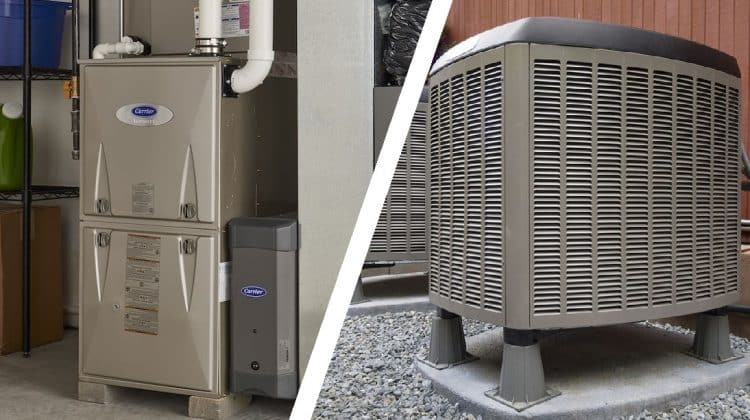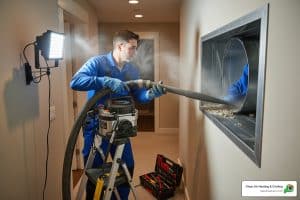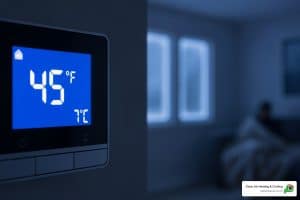“HVAC” is a term you have probably heard over and over if you are a homeowner, but many people are not even entirely sure what it means. HVAC is a system of machines and components that are designed to provide a comfortable temperature and environment in the home or any other enclosed space. Installing an HVAC system in your home is the easiest and most convenient way to take care of all conditioning and air quality needs, and this post will help explain why you need it!
What Is HVAC?
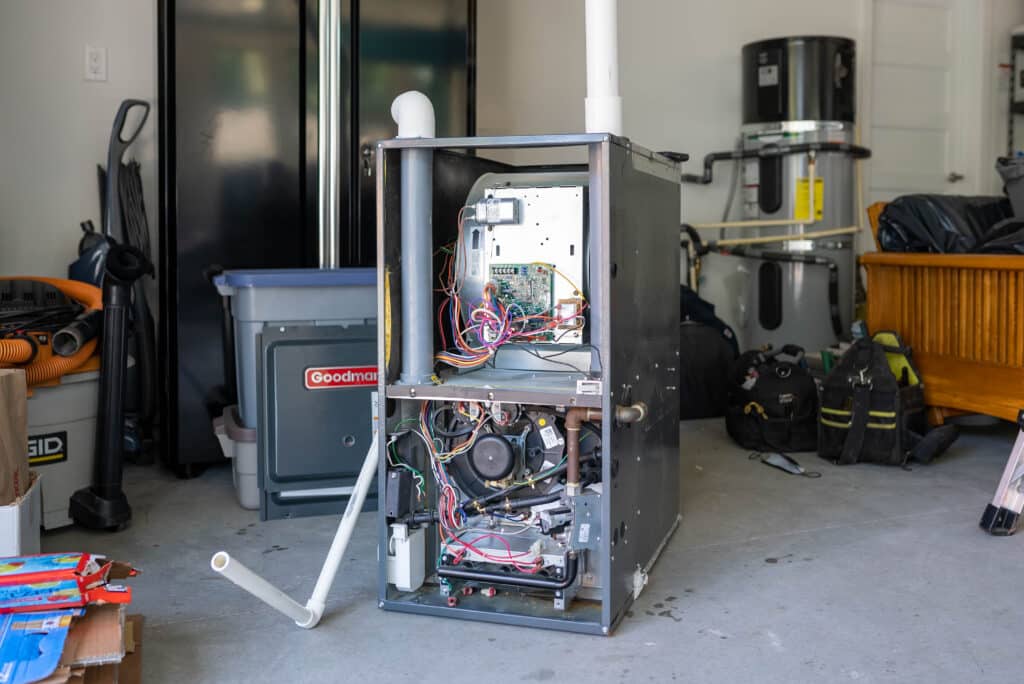
The term “HVAC” stands for heating, ventilation, and air conditioning. As the name suggests, HVAC systems are designed to take care of all your air quality and temperature needs rather than focusing on just one aspect. The major benefit of these systems is that they will both heat and cool your home, meaning year-round comfort with fewer chances of costly damages or malfunctions. These systems are usually composed of an air handler unit (AHU), thermostat, filters, dampers/vents for fresh air intake, and exhausts for stale air removal.
Heating systems use energy sources like electricity, natural gas, and oil to heat up the air in the home. Ventilation systems move air in and out of the structure, allowing fresh air into the building while removing stale, polluted air. Air conditioning systems reduce humidity levels and regulate temperature by cooling down hot air that is taken in by the unit. If you have a system in your home that involved all of these components, then you have an HVAC system!
The Difference Between HVAC & AC
Many people are confused by the differences between HVAC and air conditioning (AC) systems. These terms are often used interchangeably, even by professionals. However, there is a distinct difference between the two terms/systems, and understanding that difference is key to understanding the benefits of an HVAC system.
AC is just one part of an HVAC system. Think of it this way: all HVAC systems include air conditioners, but not all air conditioners are part of an HVAC system. While AC systems can cool down hot air, they don’t provide ventilation or heating as a full HVAC system does. While AC may be a great option for smaller spaces where only cooling is needed, if you want to have the full range of climate control options available to you then an HVAC system is your best bet.
Major Components Of HVAC Systems
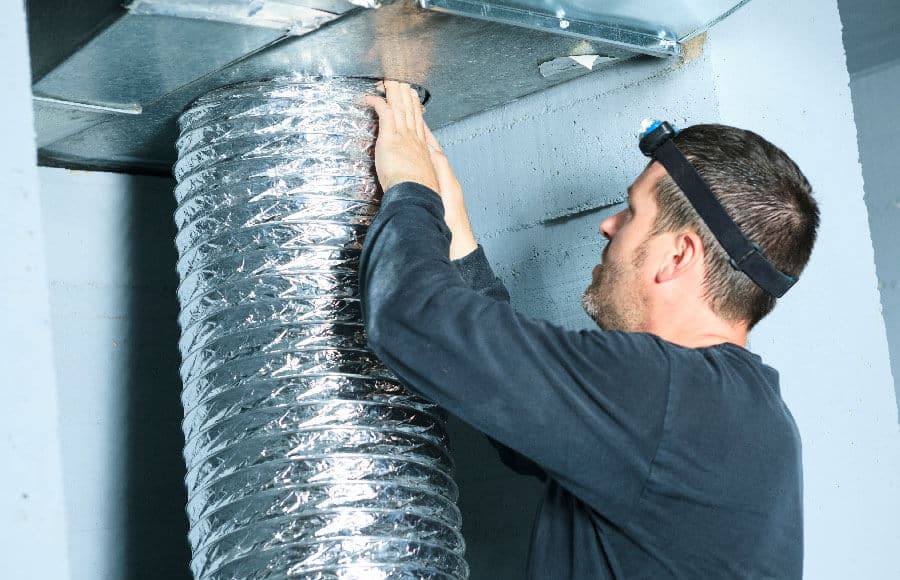
Now that we have a general understanding of what HVAC means, we can take a closer look at these systems and their components. There are, of course, various electronics, piping, and wiring involved in a comprehensive HVAC system, but understanding the most basic components and how they function will help you attain a better knowledge of how these systems work. Below are the most essential parts of an HVAC system that allow for full air quality and temperature control:
- Furnace – This is responsible for creating heat by burning natural gas, oil, or electricity (for heat pumps). Incoming cool air is heated and then distributed through the ducts by a blower motor.
- Heat Exchanger – This is a system of metal walls or coils that get heated by the heating element of the furnace. Air gets pushed over or through the exchanger by the blower, heating that air as it enters the ducts.
- Condenser – The air conditioning unit that sits outside the home is the condenser. It receives refrigerant in the form of gas, cools the refrigerant back into a liquid state, and sends the refrigerant to the evaporator coil.
- Evaporator Coil – This coil is usually found in the air handler unit or furnace. It cools down the air entering it by passing the air over refrigerant-filled coils that absorb heat and turn it into cool air to be distributed.
- Thermostat – This is the device that controls all the other components. It monitors the temperature of your home and sends signals to different parts of the system to respond accordingly with either hot or cool air.
- Ducts – Passageways through which air is distributed are known as ducts. Supply lines distribute the conditioned air to the vents of the building, and return lines pass through air filters and back into the furnace/air handler.
Why HVAC Is Important
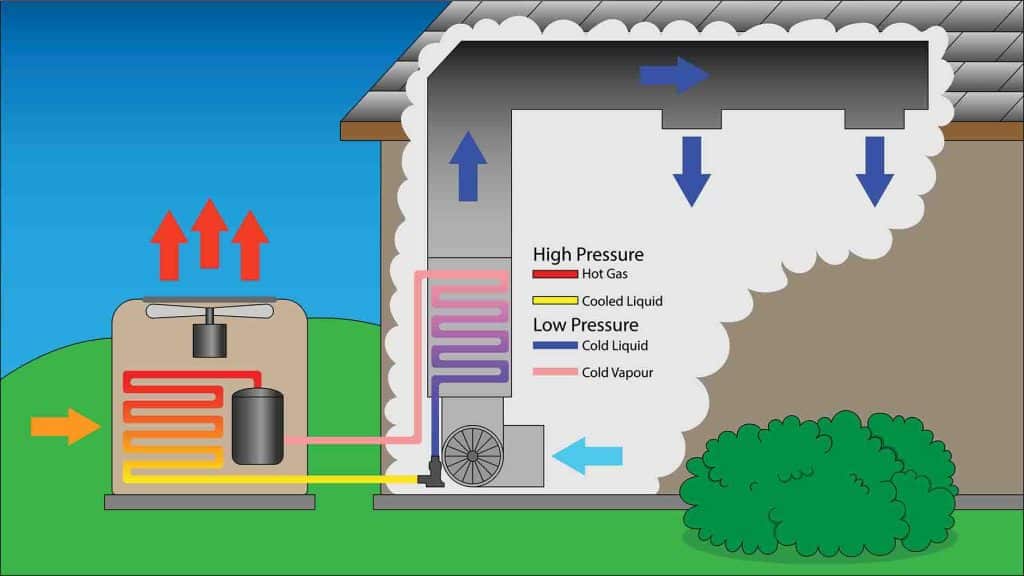
Having an updated, efficient HVAC system can make a huge difference in your quality of life and comfort level at home. With heating, ventilation, and air conditioning accounted for, you will be able to regulate temperatures year-round no matter where you are in your home. Additionally, these systems are great for anyone looking to reduce energy costs, as they utilize energy more efficiently than older models or individual units like a window AC unit or space heater would.
HVAC systems are also easier and cheaper to maintain. Instead of having to purchase and maintain different systems for heating, cooling, and air quality, you can have one system that efficiently takes care of all your needs. All the components of a full HVAC system work with one another, so a trained specialist can easily identify and fix a problem for either heating or cooling issues.
Do You Need HVAC For Your Home?
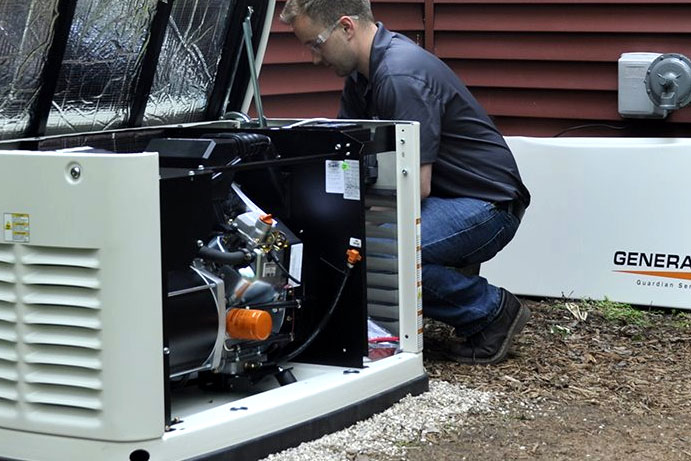
Some homes have fully functioning furnaces that work well to heat the home, but they may not have an AC unit to keep them cool in summer. AC units can be installed separately in these cases, but for the most efficient and cost-effective option, a full HVAC system is recommended.
Having a full HVAC system will help ensure you stay comfortable year-round without having to worry about separate systems breaking down or malfunctioning at different times of the year. If you don’t mind the heat of summer in your region, a simple furnace to heat your home in winter may be enough. However, if you want full control of your climate at all times, especially near San Juan County, WA, installing a new HVAC system may be the way to go. Contact Clean Air today for a free quote and more information about the benefits of HVAC systems!

